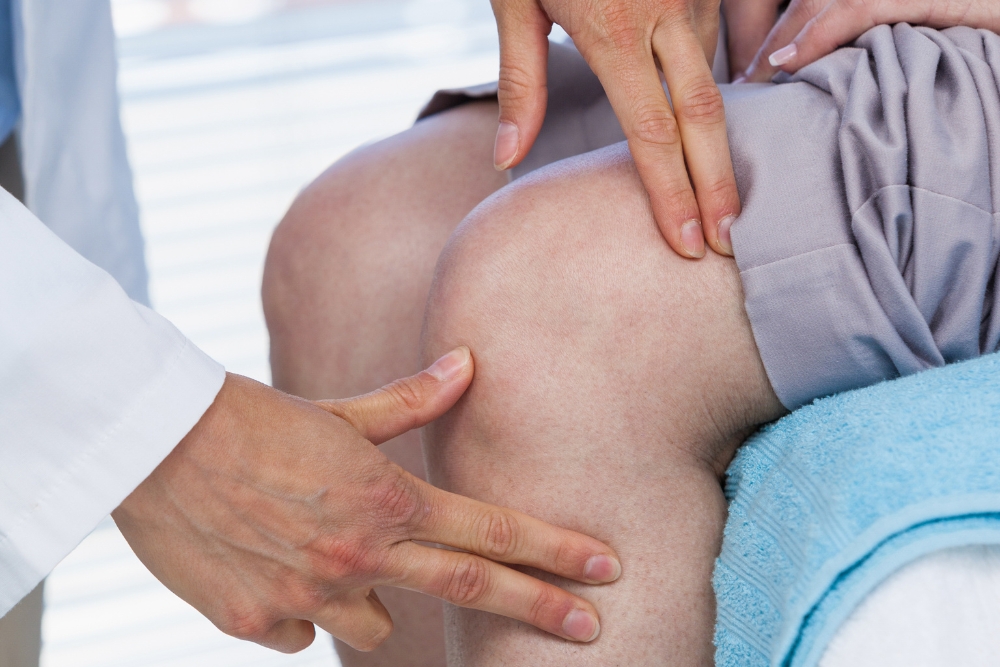Knee Osteoarthritis Treatment: Effective Options for Joint Pain Relief
Knee osteoarthritis is a common degenerative joint condition that affects millions of people worldwide. This chronic ailment causes pain, stiffness, and reduced mobility, significantly impacting the quality of life for those who suffer from it. As the knee joint deteriorates over time, finding effective treatments becomes crucial for managing symptoms and maintaining an active lifestyle. This article explores various treatment options available for knee osteoarthritis, ranging from conservative approaches to advanced therapies.

-
Exercise and physical therapy: Strengthening the muscles around the knee can help support the joint and reduce pain. Low-impact activities like swimming, cycling, and tai chi are particularly beneficial.
-
Weight management: Maintaining a healthy weight reduces stress on the knee joints, potentially slowing disease progression and easing symptoms.
-
Medications: Over-the-counter pain relievers and anti-inflammatory drugs, such as acetaminophen or ibuprofen, can help manage pain and reduce inflammation.
-
Lifestyle modifications: Using assistive devices like canes or braces, modifying daily activities, and applying heat or cold therapy can all contribute to symptom relief.
How can advanced non-surgical therapies help with knee pain?
For patients who don’t find sufficient relief from initial treatments, advanced non-surgical therapies may be considered. These options can provide more targeted relief and potentially delay or prevent the need for surgery:
-
Viscosupplementation: This therapy involves injecting hyaluronic acid into the knee joint to improve lubrication and shock absorption.
-
Corticosteroid injections: These powerful anti-inflammatory medications can be injected directly into the joint to provide temporary pain relief.
-
Platelet-rich plasma (PRP) therapy: This innovative treatment uses a concentration of the patient’s own platelets to stimulate healing and reduce inflammation in the affected joint.
-
Stem cell therapy: While still considered experimental for osteoarthritis, some patients have reported positive results from injections of stem cells to promote tissue repair.
What surgical options are available for severe knee osteoarthritis?
In cases where conservative treatments and advanced therapies fail to provide adequate relief, surgical intervention may be necessary. Surgical options for knee osteoarthritis include:
-
Arthroscopy: This minimally invasive procedure allows surgeons to remove loose cartilage, smooth rough surfaces, and address other minor joint issues.
-
Osteotomy: This surgery involves cutting and reshaping the bone to shift weight away from the damaged part of the knee.
-
Partial knee replacement: For patients with osteoarthritis limited to one area of the knee, this procedure replaces only the damaged portion of the joint.
-
Total knee replacement: In severe cases, the entire knee joint is replaced with artificial components, providing significant pain relief and improved function.
Can complementary therapies provide additional relief for joint pain?
Many patients find that complementary therapies can offer additional relief when used alongside traditional treatments. Some popular options include:
-
Acupuncture: This ancient Chinese practice may help reduce pain and improve function in some patients with knee osteoarthritis.
-
Massage therapy: Regular massage can help improve circulation, reduce muscle tension, and potentially alleviate pain associated with osteoarthritis.
-
Dietary supplements: Some people report benefits from supplements like glucosamine and chondroitin, although scientific evidence for their effectiveness is mixed.
-
Mind-body techniques: Practices such as meditation, yoga, and tai chi can help manage pain perception and improve overall well-being.
What are the latest advancements in knee osteoarthritis treatment?
Researchers continue to explore new treatments for knee osteoarthritis, with several promising developments on the horizon:
-
Gene therapy: Scientists are investigating ways to use gene editing techniques to slow cartilage degradation and promote joint repair.
-
Nanotechnology: Nanoparticles may offer new ways to deliver drugs directly to affected joints, potentially improving treatment efficacy.
-
Regenerative medicine: Advanced techniques using a patient’s own cells or tissues to regenerate cartilage are showing promise in early studies.
-
Wearable technology: Smart devices that monitor joint movement and provide real-time feedback may help patients optimize their exercise routines and daily activities.
What factors should be considered when choosing a treatment plan?
Selecting the most appropriate treatment for knee osteoarthritis depends on several factors:
-
Severity of symptoms: The extent of pain and disability will influence the aggressiveness of treatment.
-
Stage of disease: Early-stage osteoarthritis may respond well to conservative measures, while advanced cases might require more intensive interventions.
-
Overall health: A patient’s age, general health, and other medical conditions can impact treatment choices.
-
Lifestyle and goals: Consideration of the patient’s activity level and personal objectives is crucial in tailoring an effective treatment plan.
-
Cost and accessibility: The availability of certain treatments and their associated costs may influence decision-making.
Knee osteoarthritis is a complex condition that requires a personalized approach to treatment. From conservative measures to advanced surgical techniques, a wide range of options exists to help patients manage their symptoms and maintain their quality of life. As research continues to advance, new and more effective treatments are likely to emerge, offering hope for those affected by this challenging condition. Patients should work closely with their healthcare providers to develop a comprehensive treatment plan that addresses their unique needs and goals.
This article is for informational purposes only and should not be considered medical advice. Please consult a qualified healthcare professional for personalized guidance and treatment.






